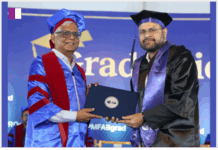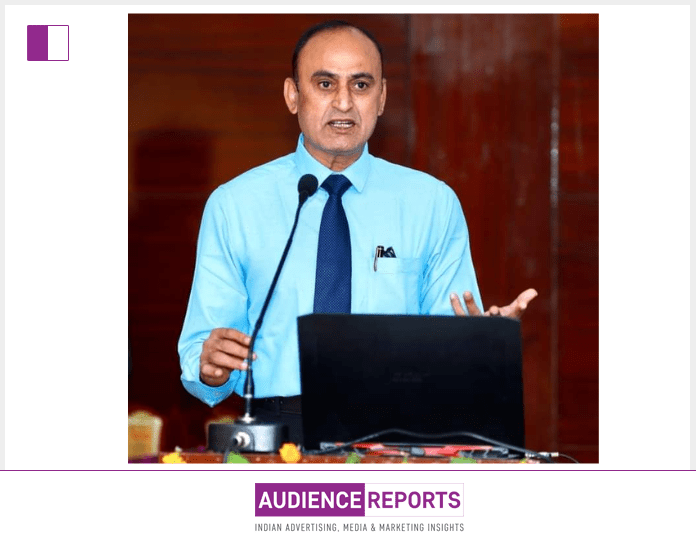Prof. SS Prasada Rao Ph.D, Dean at the Centre for Teaching and Learning, champions a transformative role for faculty in higher education. His recent LinkedIn post highlights the crucial contributions of faculty members in addressing contemporary challenges facing industries and societies worldwide.
In his thought-provoking post, Prof. SS Prasada Rao Ph.D underscores the pivotal role of faculty members in higher education. “Faculty members,” he emphasizes, “are catalysts for change, leveraging their expertise to tackle pressing industry and societal issues.” This perspective resonates deeply in today’s dynamic educational landscape, where academia’s integration with real-world challenges is more crucial than ever.
A key focus of Prof. SS Prasada Rao Ph.D’s insights is on workforce development. He advocates for collaborative efforts between engineering faculty and tech companies to design courses on cutting-edge technologies such as mechatronics, AI, and cybersecurity. Such initiatives ensure that graduates possess the skills needed to thrive in today’s rapidly evolving industries. “Industry readiness,” Prof. SS Prasada Rao Ph.D asserts, “is not just a goal but a necessity in preparing our future workforce.”
Beyond technical fields, Prof. SS Prasada Rao Ph.D highlights the impactful contributions of IT faculty in bridging digital divides. By providing internet access and promoting digital literacy in marginalized communities, these educators empower individuals and pave the way for inclusive growth. “Digital inclusion,” he argues, “is fundamental to creating equitable opportunities in today’s digital age.”
The post also delves into the role of business school faculty in driving industry advancements through pioneering research and executive education. Prof. SS Prasada Rao Ph.D notes their role in deciphering market complexities and generating actionable insights for businesses. “Their research,” he emphasizes, “fuels innovation and guides strategic decision-making, making them indispensable partners in industry evolution.”
In the realm of research and innovation, Prof. SS Prasada Rao Ph.D underscores the collaboration between biomedical sciences faculties and pharmaceutical companies. This partnership drives the development of life-saving therapies, illustrating academia’s profound impact on healthcare advancements. Similarly, environmental science departments collaborate with industries to promote sustainable practices, addressing global environmental challenges through research and innovation.
Turning to societal challenges, Prof. SS Prasada Rao Ph.D highlights the contributions of public health and nutrition faculties. Their efforts range from designing health awareness campaigns to researching policies aimed at combating lifestyle diseases. Meanwhile, social sciences faculties focus on advocating for inclusive policies and addressing social inequalities, underscoring academia’s role in promoting societal welfare.
In the legal domain, Prof. SS Prasada Rao Ph.D acknowledges the proactive stance of law faculties in driving legal reforms and providing pro bono services to marginalized communities. Education faculties, he notes, play a pivotal role in enhancing teacher training in underserved areas, thereby improving educational outcomes and fostering community development.
Throughout his post, Prof. SS Prasada Rao Ph.D emphasizes the transformative potential of academia when aligned with industry needs and societal aspirations. He advocates for a collaborative approach where faculty members harness their expertise to bridge the gap between theory and practice. “Academic research,” he asserts, “must translate into tangible solutions that address real-world challenges.”
Prof. SS Prasada Rao Ph.D’s insights underscore a compelling vision for higher education: one where faculty members are not just educators but drivers of change. Their contributions span disciplines and industries, catalyzing innovation, fostering inclusivity, and shaping a sustainable future. As academia continues to evolve, Prof. SS Prasada Rao Ph.D stands as a beacon of inspiration, guiding educators and institutions towards a more impactful engagement with industry and society. His vision highlights the transformative power of education in shaping a brighter, more sustainable future for all.



































